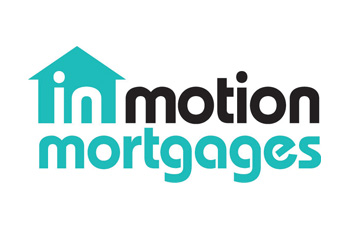How to Prevent Mistakes with Equity Release Mortgages
How to Prevent Mistakes with Equity Release Mortgages
Blog Article
Discovering the Various Kinds of Equity Release Mortgages Available Today
Equity Release mortgages present numerous alternatives for house owners aged 55 and over. equity release mortgages. These monetary products accommodate various requirements and preferences, allowing people to gain access to funds from their residential property. From life time mortgages to common admiration home loans, each type supplies unique advantages. Recognizing these choices is important for making educated choices. What factors should one take into consideration when choosing one of the most ideal equity Release plan? The details that comply with may drop light on this vital subject
Comprehending Equity Release Mortgages
Equity Release home loans supply home owners, normally those aged 55 and over, with a means to access the worth bound in their residential or commercial property without requiring to market it. This monetary alternative permits individuals to convert a portion of their home equity right into cash money, which can be used for various objectives, such as home enhancements, settling debts, or funding retirement.Equity Release can take different types, however it basically involves borrowing versus the worth of the home while maintaining possession. Homeowners can pick to receive a round figure or a series of smaller sized payments, depending upon their economic needs and preferences.Additionally, the amount readily available for Release is influenced by the building's value, the house owner's age, and specific lender requirements. In general, understanding equity Release mortgages is necessary for home owners to make educated choices concerning using their home's equity while taking into consideration the long-term ramifications.
Lifetime Mortgages
Lifetime home loans stand for among one of the most preferred forms of equity Release. This monetary product enables property owners, typically aged 55 or older, to obtain versus the worth of their building while retaining possession. The financing, which is protected against the home, accumulates passion gradually but does not require regular monthly repayments. Instead, the lending and accrued passion are paid off when the house owner dies or relocates right into lasting care.Lifetime home mortgages use flexibility, as borrowers can pick to get a lump sum or go with a drawdown facility, accessing funds as required. Significantly, many strategies featured a no-negative-equity assurance, guaranteeing that borrowers will certainly never owe even more than the worth of their home. This feature supplies satisfaction, permitting people to enjoy their retirement without the fear of diminishing their estate. In general, life time home mortgages work as a feasible option for those looking for monetary assistance in later life.
Home Reversion Plans

Drawdown Lifetime Mortgages
While lots of homeowners seek ways to access their wealth, drawdown life time home loans offer an adaptable alternative that enables individuals to Release funds progressively. This sort of equity Release mortgage makes it possible for homeowners to borrow versus the value of their home while retaining ownership. Unlike traditional life time mortgages, drawdown strategies enable debtors to access a part of their equity upfront and withdraw added funds as needed, up to a fixed limit.This function can be specifically helpful for those that desire to manage their funds very carefully, as it minimizes passion build-up by only billing interest on the amounts attracted. In addition, drawdown lifetime home loans frequently feature a "no unfavorable equity guarantee," making sure that borrowers will certainly never ever owe more than their home's worth. This option fits senior citizens that want financial security and adaptability, enabling them to fulfill unforeseen expenditures or maintain their lifestyle without having to sell their residential property.
Enhanced Lifetime Mortgages
Improved Life time Mortgages provide unique benefits for qualified property owners looking for to Release equity from their properties. Understanding the eligibility standards is important, as it identifies who can benefit from these specialized financings. However, it is likewise essential to examine the prospective downsides associated with enhanced options, ensuring an all-around viewpoint on their usage.
Eligibility Criteria Clarified
Understanding the qualification criteria for Improved Life time Mortgages is important for potential candidates looking for to access the equity in their homes. Usually, candidates need to be aged 55 or older, as this age demand is basic in the equity Release market. House owners ought to have a building valued at a minimal threshold, which can differ by loan provider. Importantly, the building needs to be their primary house and in great problem. Lenders commonly evaluate the home owner's health and wellness status, as specific health problems might enhance qualification and benefits. In addition, applicants need to not have existing considerable financial debts secured versus the residential or commercial property. Fulfilling these criteria enables people to explore Improved Life time Home mortgages as a practical alternative for accessing funds bound in their homes.
Benefits of Improved Home Mortgages
After clarifying the qualification criteria, it ends up being obvious that Boosted Lifetime Mortgages use numerous substantial advantages for property owners seeking to utilize their property equity. Mainly, they offer accessibility to a bigger financing quantity contrasted to standard lifetime mortgages, benefiting those with health conditions or age-related factors that enhance their life span danger. This improved borrowing capability allows property owners to satisfy different economic requirements, such as home improvements or retirement costs. In addition, these home loans typically come with flexible settlement alternatives, allowing consumers to manage their finances more effectively. The no-negative-equity guarantee better assures that house owners will never owe even more than their building's worth, offering peace of mind. Overall, Boosted Lifetime Mortgages offer a compelling alternative for qualified property owners looking for monetary solutions.
Possible Disadvantages Considered
While Improved Lifetime Home loans provide countless benefits, possible disadvantages warrant cautious consideration. One considerable issue is the influence on inheritance; the equity released minimizes the value of the estate delegated recipients. Furthermore, these home mortgages can accrue significant interest gradually, leading to a significant financial debt that may surpass the initial car loan quantity. There might also be limitations on property adjustments or rental, restricting home owners' flexibility. Boosted items frequently need certain health and wellness conditions, implying not all homeowners will qualify. Finally, managing the fees and charges connected with these home mortgages can be intricate, possibly causing unanticipated prices. As an outcome, people must extensively examine their circumstance and seek advice from monetary consultants before proceeding.
Shared Appreciation Mortgages
Shared Recognition Home loans represent an unique economic setup that enables property owners to accessibility equity while sharing future residential or commercial property worth boosts with the loan provider. This approach supplies prospective benefits such as lowered regular monthly payments, yet it likewise find includes disadvantages that must be meticulously considered. Recognizing the eligibility needs is vital for those interested in this choice.
Concept Introduction
Equity Release home loans, particularly in the type of common appreciation home mortgages, supply house owners an unique economic remedy that enables them to accessibility funds by leveraging the value of their building. In this plan, a lending institution offers a car loan to the home owner, which is usually settled through a share of the residential property's future appreciation in value. This implies that when the home owner markets the residential or commercial property or dies, the lending institution obtains a percentage of the enhanced value, instead of simply the first lending amount. Shared gratitude home loans can be appealing for those aiming to supplement their revenue or money substantial expenses while keeping ownership of their home. The financial implications of shared appreciation have to be meticulously taken into consideration by possible debtors.
Benefits and Drawbacks
Common recognition mortgages can give significant financial benefits, they likewise come with remarkable drawbacks that possible debtors must consider. These home mortgages allow home owners to gain access to equity in their residential properties while sharing a portion of any type of future appreciation with the lending institution. This arrangement can be valuable during times of climbing residential property worths, using significant funds without regular monthly settlements. The major drawback is the potential loss of equity; house owners might finish up with appreciably minimized inheritance for successors. Additionally, the complexity of the terms can result in misconceptions pertaining to repayment obligations and the portion of recognition owed. It is essential for customers to weigh these elements thoroughly before committing to a shared appreciation mortgage.

Eligibility Requirements
What criteria must homeowners meet to receive a common recognition home loan? Mainly, candidates must go to the very least 55 years old, guaranteeing they are within the target group for equity Release products. In addition, the home must be their primary house and usually valued over a specified minimum limit, often around ? 100,000. Lenders also evaluate the house owner's monetary circumstances, consisting of revenue and exceptional financial obligations, to identify they can take care of the home mortgage properly. Importantly, the home needs to remain in great condition and without substantial lawful encumbrances. House owners should additionally have a clear understanding of the terms, consisting of just how gratitude will certainly be shown the lender upon sale or transfer of the residential property, as this influences total returns.
Selecting the Right Equity Release Alternative

Often Asked Concerns
What Age Do I Required to Be for Equity Release?
The age need for equity Release generally starts at 55 for the majority of strategies. Nonetheless, some companies might provide alternatives for those aged 60 and above, showing differing terms based upon private situations and lender plans.
Will Equity Release Affect My Inheritance?
Equity Release can affect inheritance, as the quantity obtained plus passion reduces the her latest blog estate's worth. Beneficiaries may obtain much less than anticipated, depending upon the residential property's gratitude and the complete financial obligation at the time of passing.
Can I Relocate Residence With Equity Release?
The concern of relocating house with equity Release occurs frequently. Generally, individuals can move their equity Release strategy to a new residential or commercial property, but particular terms may apply, calling for appointment with the lender for assistance.
Are There Charges Related To Equity Release Mortgages?
Costs associated with equity Release mortgages can include arrangement fees, appraisal fees, and lawful prices. In addition, there might be very early settlement fees, which can influence the general expense and financial effects for the customer.
Just How Does Equity Release Influence My Tax Situation?
Equity Release can influence one's tax obligation circumstance by potentially raising taxed income, as launched funds are considered resources. Nevertheless, it generally does not sustain immediate tax obligation obligations, making it vital to consult an economic advisor for individualized guidance.
Final thought
In recap, the variety of equity Release mortgages offered today supplies homeowners aged 55 and over several paths to access their residential or commercial property's worth - equity release mortgages. Whether choosing a lifetime home loan, home reversion strategy, or various other choices, each choice offers distinctive advantages tailored to individual monetary requirements. Cautious consideration and consultation with a monetary consultant are important to assure the chosen equity Release solution aligns with economic conditions and individual objectives, inevitably facilitating informed decision-making for a protected financial future. Equity Release mortgages existing numerous alternatives for homeowners aged 55 and over. Equity Release home mortgages give home owners, commonly those aged 55 and over, with a method to access the worth linked up in their building without requiring to offer it. Improved Lifetime Home mortgages supply distinctive advantages for eligible homeowners looking for to Release equity from their buildings. Equity Release home mortgages, especially in the type of common admiration mortgages, offer home owners a special financial solution that enables them to gain access to funds by leveraging the value of their residential or commercial property. In recap, the range of equity Release home loans readily available today uses homeowners aged 55 and over numerous pathways to access their residential property's value
Report this page